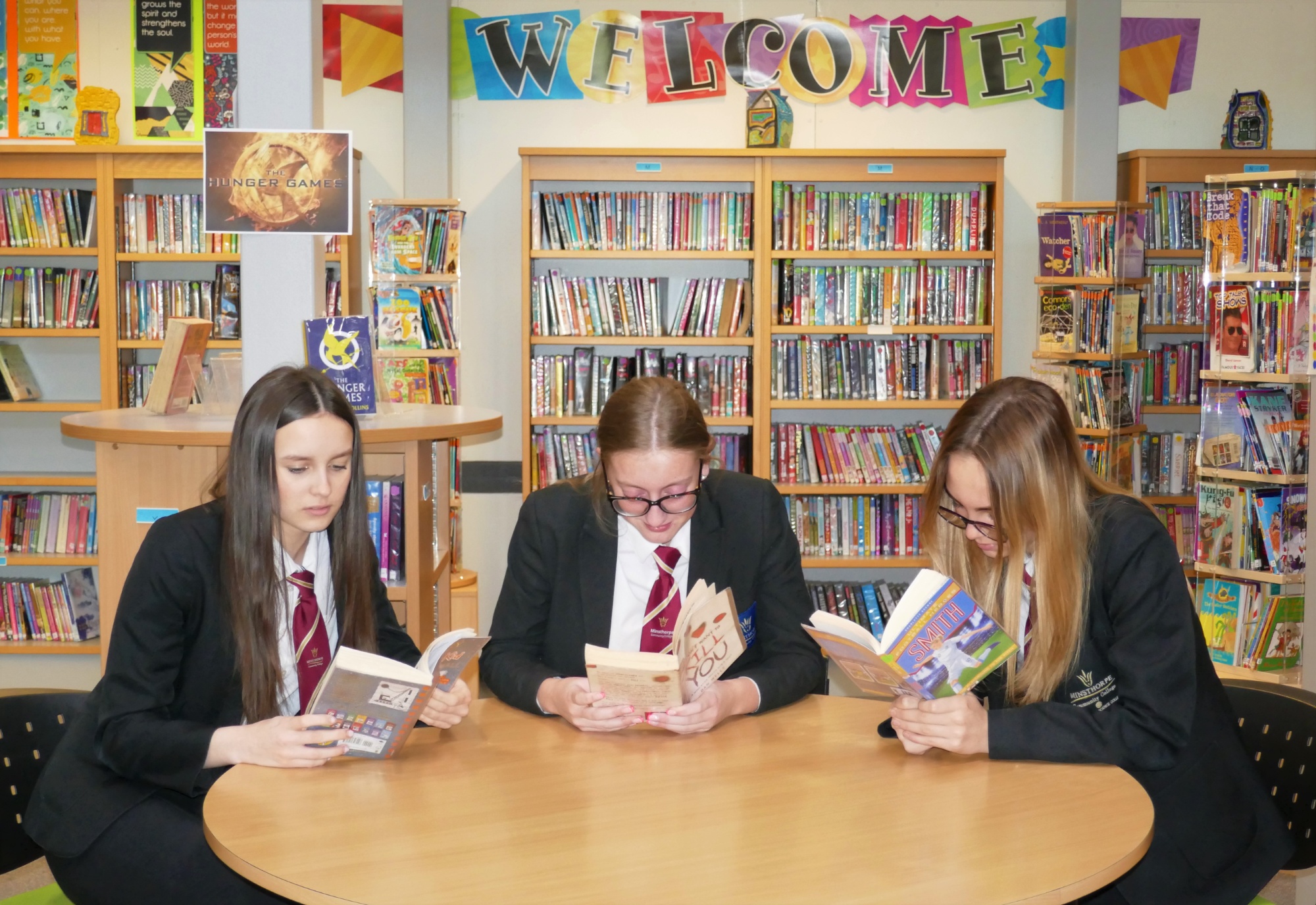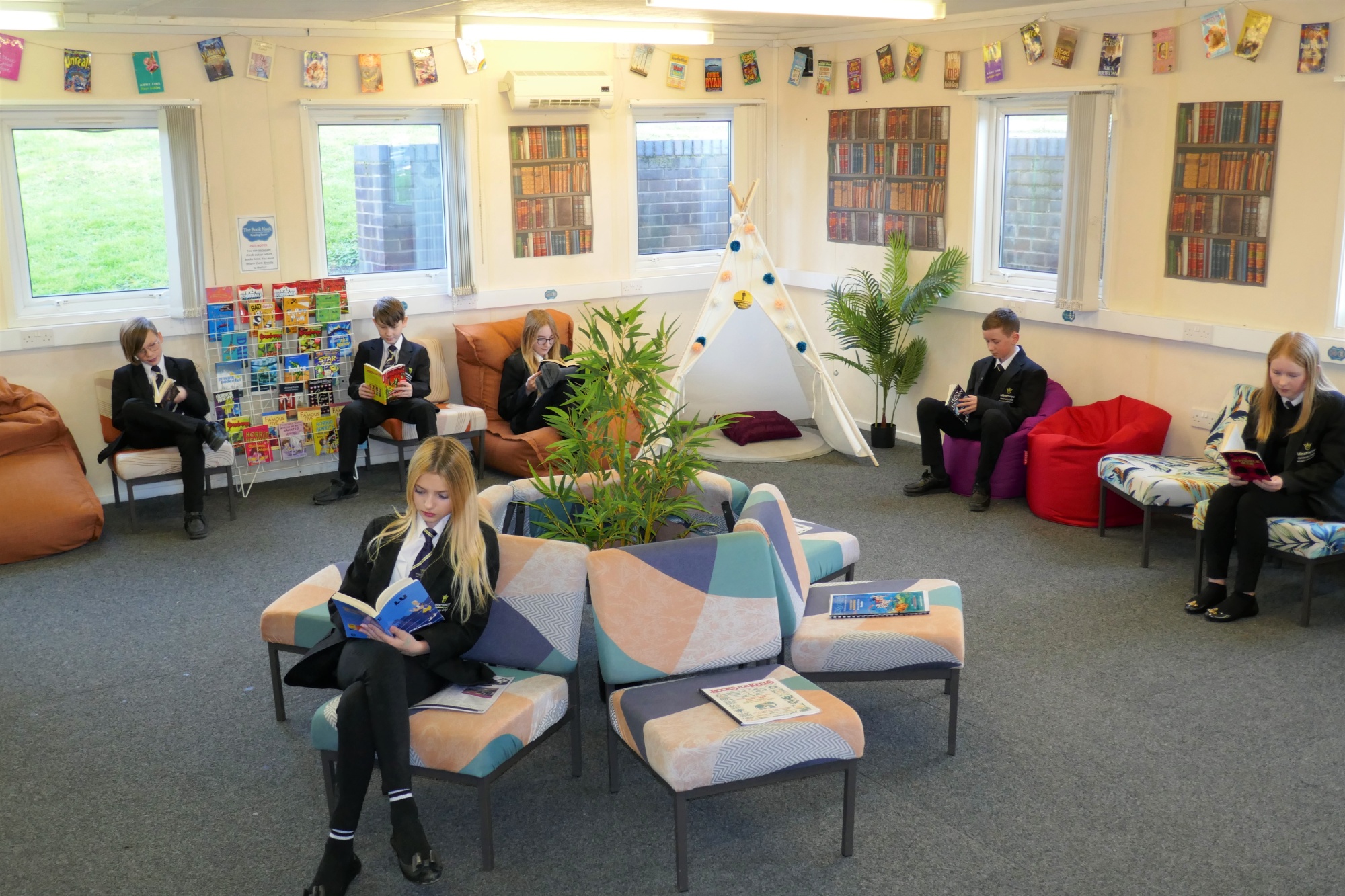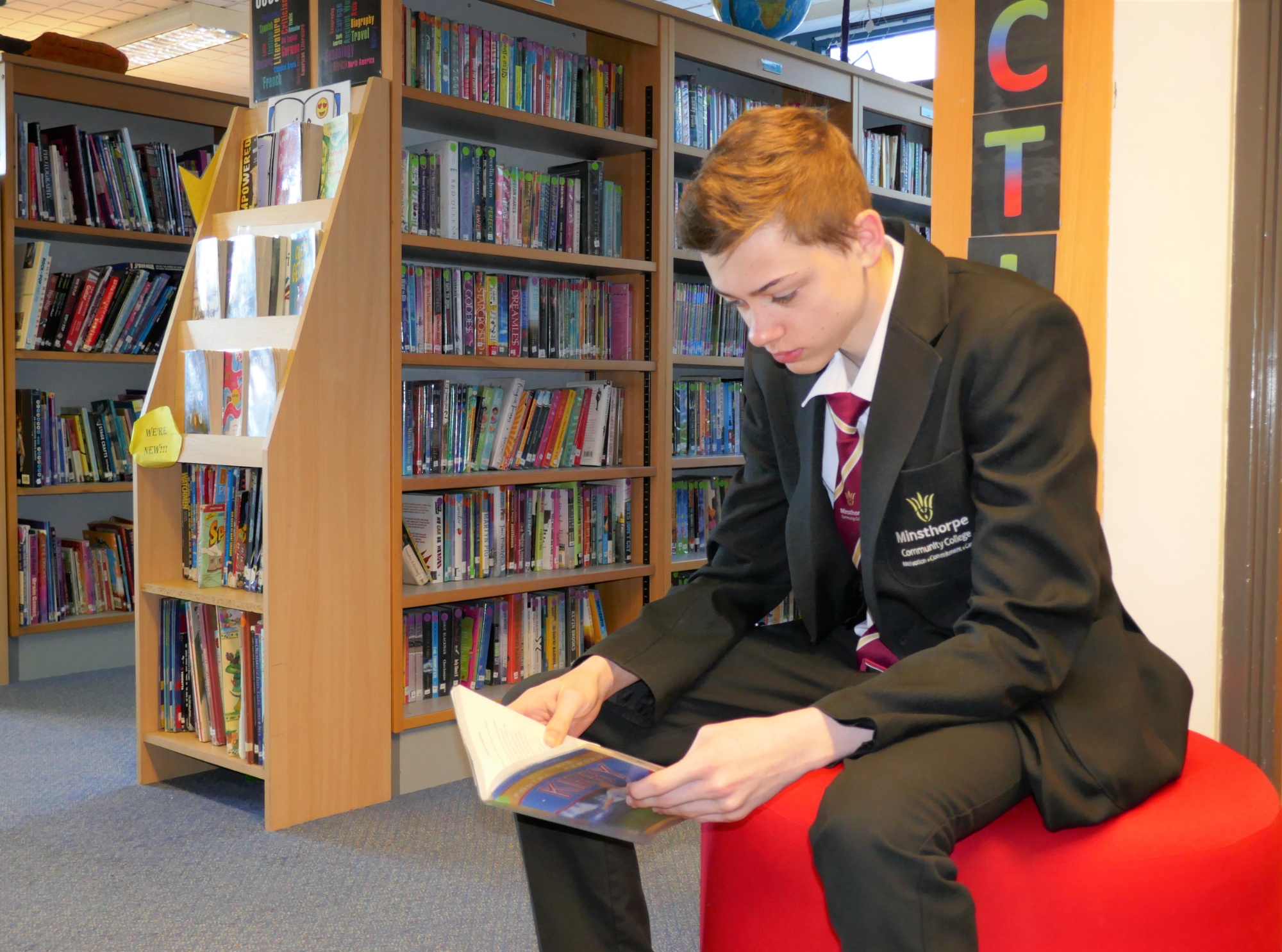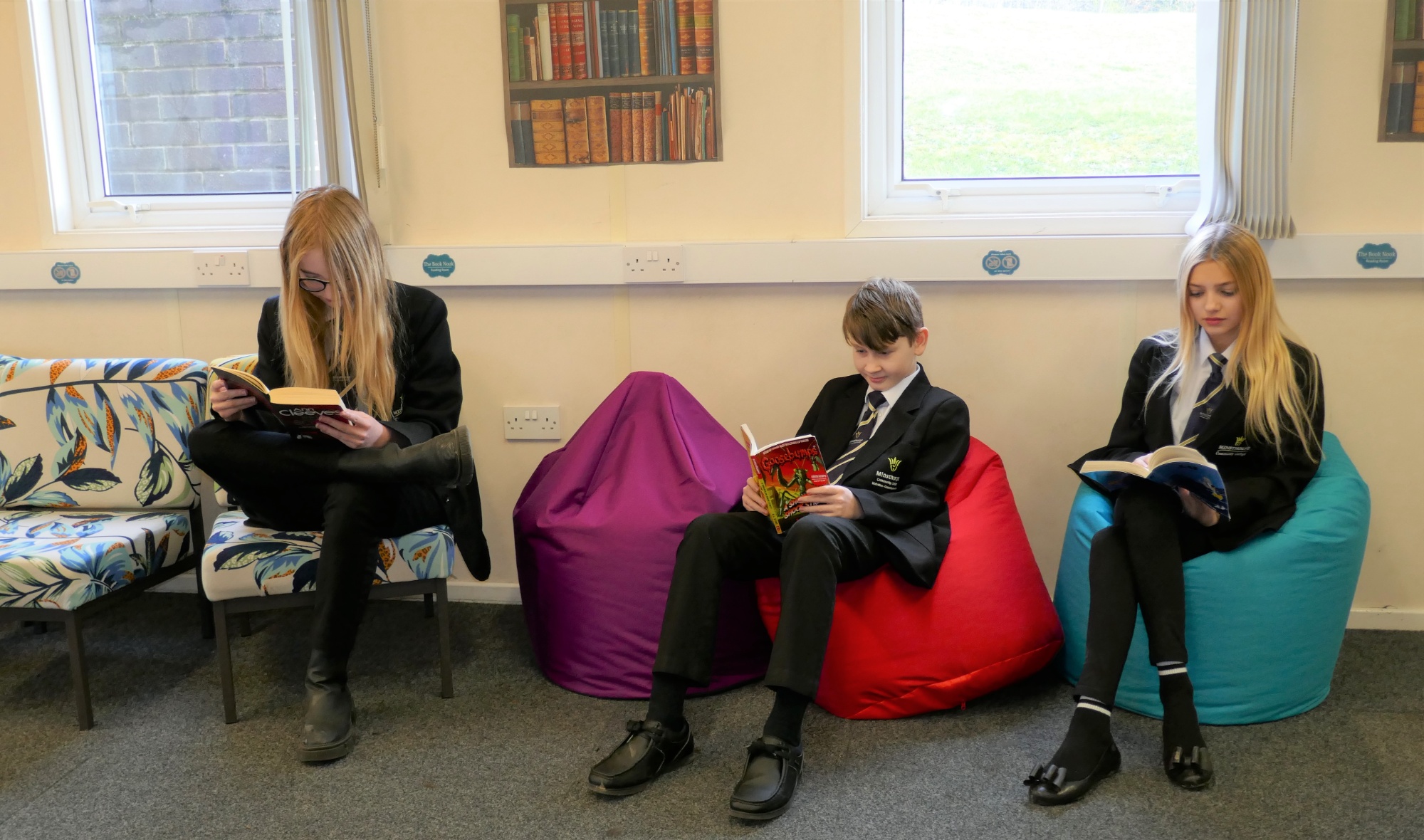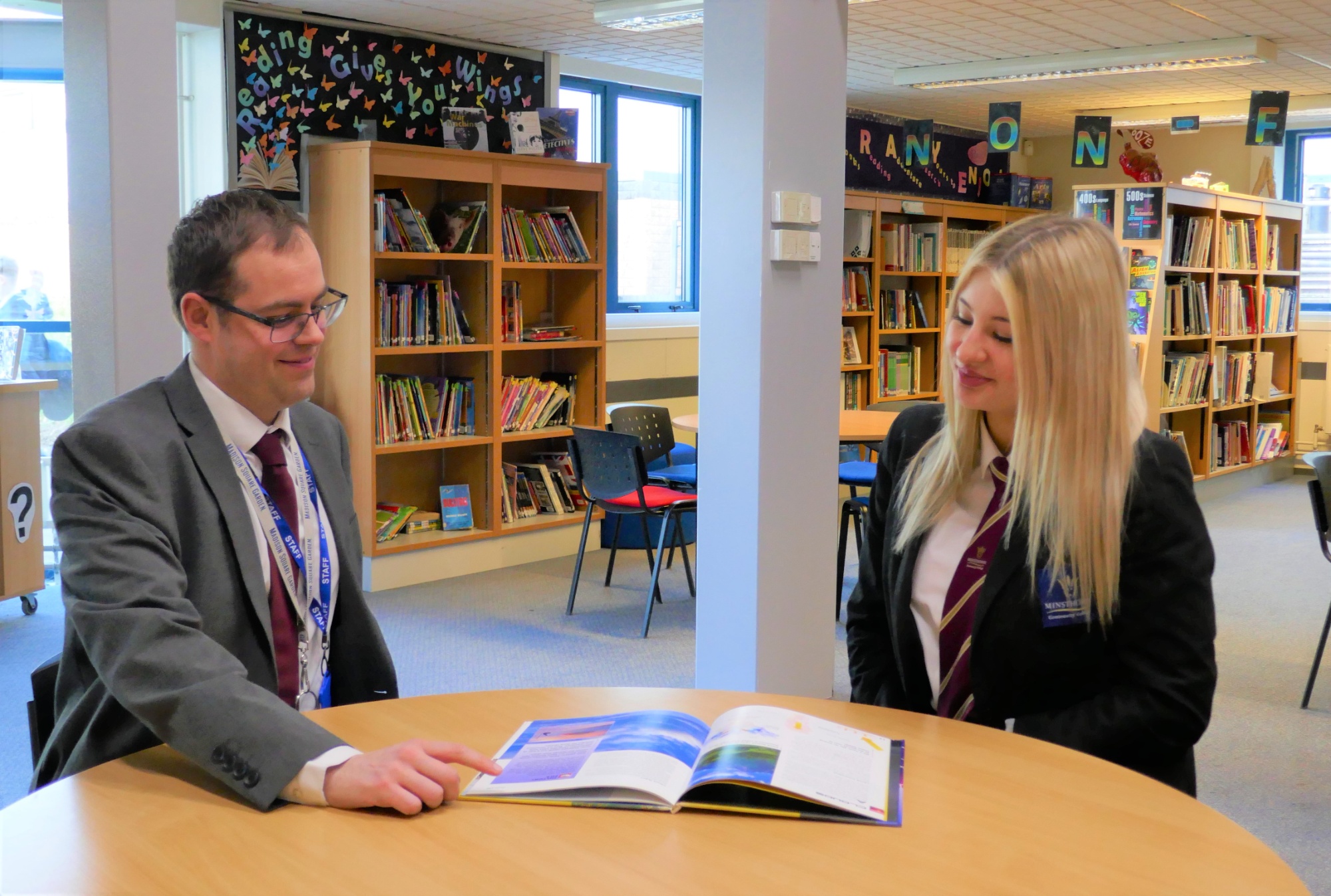
Literacy
Lifelong Literacy and Learning
At Minsthorpe Community College, we consider all teachers to be teachers of literacy. Our whole College ‘Curriculum Intent’ is to raise the achievements and aspirations of all learners through the delivery of a highly personalised, broad, balanced and inclusive curriculum that ensures all students are literate. Literacy comprises students’ reading, writing and oral skills. In order to access a broad and balanced curriculum, participate in the workplace and contribute positively to society, students need to be literate. Poor literacy skills can be detrimental to a student’s academic achievement, self-esteem and ultimately their life chances. It is for this reason that Minsthorpe Community College implements a robust literacy policy that prioritises these essential skills, supports students who may be struggling and fosters a love of reading.
Reading Culture
Fostering a love of reading is an integral part of our curriculum. A love of reading is crucial in developing an individual’s cultural capital, empathy and literacy skills. It is our intent to provide as many enriching reading opportunities as possible for the students within our college. Students may decide to read in our well-resourced Library or the ‘Book Nook’- a dedicated reading room open to students during snack breaks. We also promote a love of reading through annual events like ‘World Book Day’, ‘National Poetry Day’ and ‘The Readathon’. Throughout the academic year, students have the opportunity to enter reading orientated competitions like ‘Bookopoly’, exchange their books in ‘Pop Up Libraries’ or attend the popular ‘Book Club’ which runs every week in the Library. Students also experience ‘Guided Reading’ during the registration period; students are provided with the opportunity to listen to a full, short story or novel read to them by their teachers who are fluent, passionate readers.
The importance of reading for pleasure cannot be underestimated. Reading is a fundamental life skill. You can support your child at home by promoting a love of reading and embedding reading into your daily routines. Students who read more become more successful readers. This allows them to retain the vocabulary and background knowledge they need to improve their comprehension. Please support your child be reading with them or by encouraging them to read for at least 15 minutes every day.
The Reading Curriculum
Within English lessons, students are explicitly taught literacy skills during their fortnightly ‘Literacy Lesson’ delivered by their English teacher. In these lessons, students read extracts from a range of genres (thematically linked to their current scheme of work) to widen vocabulary, develop skills in navigating different forms, enhance cultural capital, and explicitly model to students how to read fluently by predicting, clarifying, questioning and summarising texts. The reading strategies exemplified in ‘Literacy Lessons’ are mirrored across college for consistency and informed by the Education Endowment Foundation’s Reciprocal Reading initiative.
Reading Ages
Upon entry to Minsthorpe Community College, students are assessed using the “STAR Reader Programme” to provide a ‘Reading Age’. Reading ages are measured in years and months therefore a student with a reading age of 9.04 is reading at the level expected of a child aged 9 years and 4 months. Reading age data is used to established which students are reading at an age above, below or on par with their chronological age. This allows us to tailor our support accordingly.
If you have any questions about your child’s reading age, please contact their English teacher via enquiries@minsthorpe.cc
Targeted Academic Support
As well as the ‘Star Reader Programme’ assessment, students also complete a WRAT (Wide Range Achievement Test) 5 test, designed to identify reading, spelling and numeracy skills. This data, along with KS2 scaled scores, is used to identify those students whose reading ability is significantly below the expected standard for their chronological age and rank students according to their level of need.
Students identified as significantly below the expected standard for their chronological age, undergo further diagnostic screening, using “Lexia”, an online Literacy Programme, informed by the “Simple View of Reading”. Students accessing the Lexia have at least 150 minutes dedicated to the programme over two weeks. Lexia is an interactive, phonics-based resource that improves students’ decoding, word reading, oral comprehension and reading fluency. The Lexia Programme gives teaching members of staff an instant indication of students’ progress and outlines which students require additional, teacher-led intervention.
Minsthorpe Community College’s Student Support team also offer a range of targeted academic support bespoke to an individual student’s need. This support is conducted in small groups and led by a Higher Level Teaching Assistant and/or a Teaching Assistant. Progress is measured using WRAT V and KTEA-3 (Kaufmen Test of Educational Achievement) assessments. Students identified as having one or more area of complex literacy need are provided with more intensive support using the Precision Teaching method.
If you have any questions about the College’s Literacy Curriculum, please contact Mr Ruston, Associate Assistant Principal via enquiries@minsthorpe.cc


